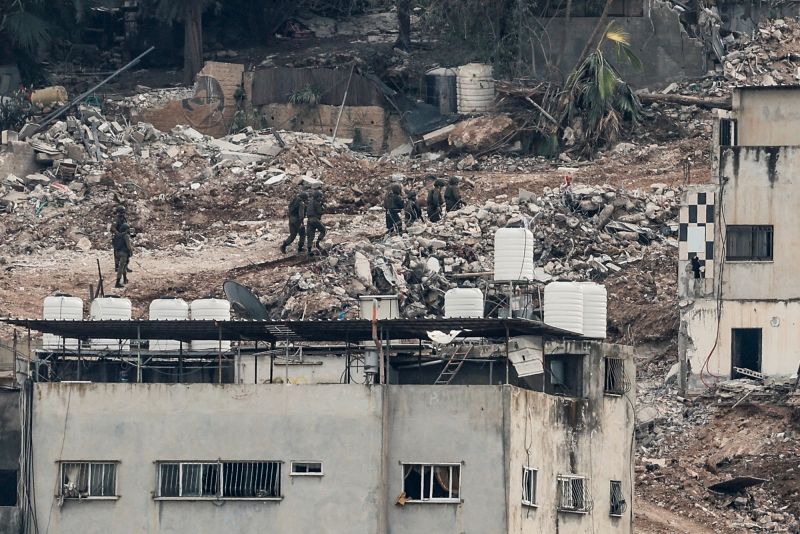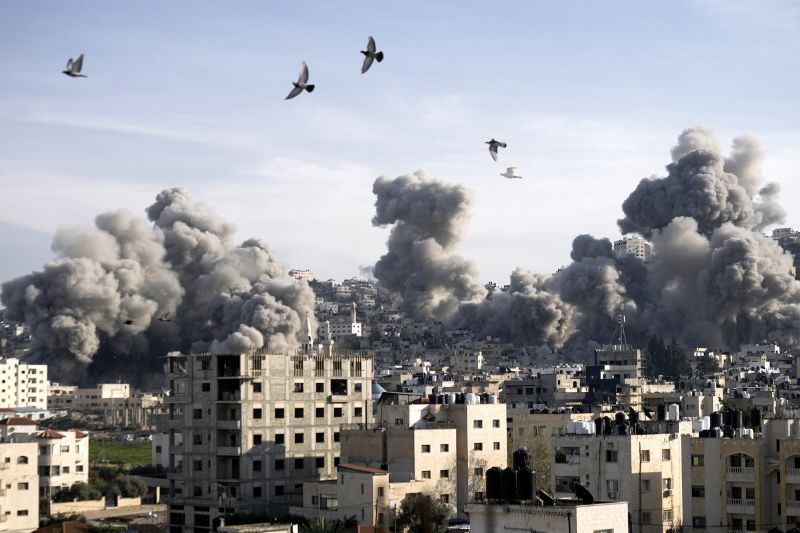Hamas ‘ready’ for talks on phase two of Gaza ceasefire: Report
Two Hamas officials speaking on condition of anonymity are being quoted by AFP expressing the group’s readiness to start discussions on the second phase of the ceasefire in Gaza.
“Hamas has informed the mediators during ongoing communications and meetings held with Egyptian mediators last week in Cairo that we are ready to start the negotiations for the second phase,” one official said.
“We are waiting for the mediators to initiate the next round of negotiations,” the other said.
Netanyahu blows past ceasefire talks deadline to confer with Trump
A deadline to begin talks on extending Gaza’s ceasefire arrived Monday with the Israeli prime minister in Washington, silence from his office about when a negotiating team might engage with Hamas, and considerable uncertainty about what the next stage of the fragile truce will look like.
The ceasefire, in place for just over two weeks, is set to expire on March 1. Under the terms of the deal, talks on the next phase are supposed to begin no later than Monday.
But the Israeli government has yet to publicly unveil a negotiating team for the talks, let alone send them to Qatar or Egypt, where Hamas is sending a delegation this week. Hamas has not publicly commented on Monday’s deadline.
Delay in start of talks about extending ceasefire ‘terrifying’
Ofer Cassif, a member of the Israeli parliament representing the Hadash party, says the apparent delay in the start of the talks about the second phase of the Gaza ceasefire is “a terrifying sign”.
“I’ve been saying since day one that Netanyahu and the thugs around him in the coalition and the government are not really interested in a ceasefire or saving the Israeli hostages – let alone saving the lives of thousands of Palestinians,” he told Al Jazeera from West Jerusalem.
“They are interested in two things: Netanyahu himself is interested, as usual, in his own good. That’s it. He wants to stay in power in order to stay out of prison. That’s the only thing he cares about, and it doesn’t matter for him if it comes at the expense of the lives of thousands and thousands of people, Palestinians and Israelis alike,” Cassif argued.
“And the thugs around him in the coalition, mainly those who are part of the fanatic, fascist parties, they are interested in using the human blood as a carpet for the Messiah. They truly believe that the continuation of the genocide in Gaza and more violence in the West Bank – as we saw just in the last few days – is part of their dream, which is in fact a nightmare. They believe that will bring the Messiah and the Third Temple, etc, and all this hogwash.
“They don’t care about human lives.”
Occupied West Bank refugee camps ‘in serious threat of total destruction’
We have some more lines from the interview with Knesset member Ofer Cassif:
“We saw in the last few days that both the refugee camp in Jenin and the refugee camp in Tulkarem are under a serious threat of total destruction and yet again another expulsion of Palestinian people from there,” he told Al Jazeera, saying this has nothing to do with security.
“I’m also afraid that this has been done on purpose by the Israeli government in order to foil the ceasefire in Gaza. That’s the reason I’m so worried,” Cassif added, appealing to countries in the region to not “leave behind your brothers and sisters in Palestine”.
“Don’t leave the Palestinians who’ve been butchered for more than one year by the Israeli government. That should have been stopped months ago,” he said. “That’s in the interest of everybody who is involved – obviously the Palestinians but also the Israelis.”





















































